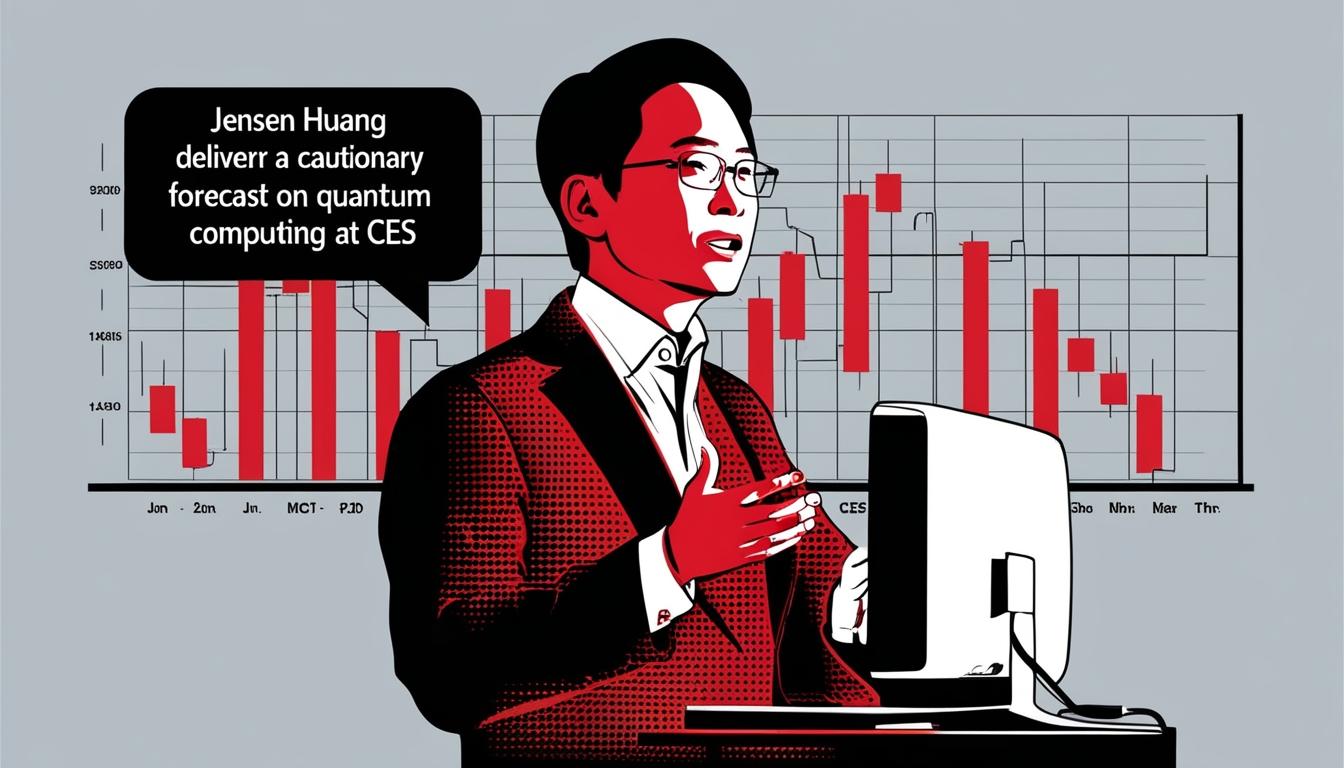In a significant development for the technology sector, Nvidia CEO Jensen Huang's recent statements have had a notable impact on the stock market, particularly concerning the burgeoning field of quantum computing. During Nvidia’s analyst day at CES, Huang projected a considerable delay in the arrival of commercially viable quantum computers, stating, "If you kind of said 15 years for very useful quantum computers, that would probably be on the early side. If you said 30, it’s probably on the late side. If you picked 20, I think a whole bunch of us would believe it."
Huang's comments, delivered in Las Vegas, have resulted in a drastic downturn for several quantum computing stocks, with shares of companies like Rigetti Computing, D-Wave Quantum, and IonQ plummeting by over 40%. This decline follows a day of gains for these companies, which had enjoyed significant momentum after Google’s unveiling of its Willow quantum chip last month. The tech industry remains keenly aware that while such innovations are promising, practical applications may take years to materialise.
The stock price fluctuations highlight investor sentiment that may be growing weary of long-term forecasts in the tech space. In the face of Huang's forecast, many investors chose to offload stocks that had recently peaked, with Rigetti gaining over 900% in the past year, D-Wave Quantum rising close to 600%, and IonQ up nearly 150%. The reality check provided by Huang contrasts sharply with the optimism that had surged following Google's announcement, which had buoyed these stocks in December 2023.
Investors had previously been excited about the potential of quantum computing, viewing it as a breakthrough technology with applications that could revolutionise important sectors, including medicine and cybersecurity. However, Huang's revelations have reignited concerns regarding the realistic timelines for these advancements, leading to a significant market recalibration.
Additionally, while the excitement around quantum technology has faced new challenges, the broader landscape of artificial intelligence (AI) remains an area of intensive focus. As businesses increasingly dive into AI-driven transformations, there is a growing sense of ambition but also impatience among investors regarding the pace of innovation in both AI and quantum computing sectors. The current sentiment reflects a desire for tangible results in a market that thrives on quarterly performance metrics.
As companies navigate these promising yet complex technological waters, the industry seems to be at a crossroads—where immediate advances in AI are juxtaposed with the tantalising potential of quantum computing, tempered by Huang's cautionary outlook.
Source: Noah Wire Services
